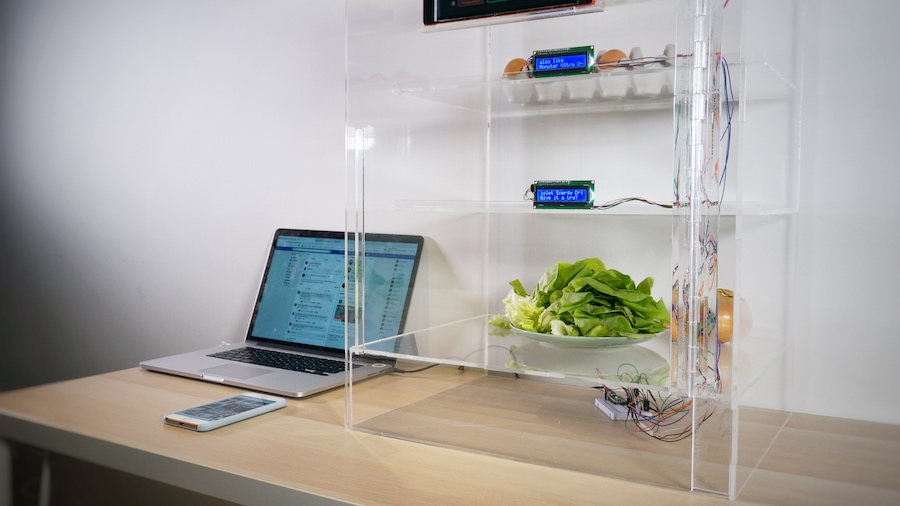MA Interaction Design Communication delves into expanded and experimental design practices, exploring the intersection of physical and digital domains of design, through research, prototyping and provocation.
From the critical and speculative, to human-centred approaches to the internet of things, this year’s show, LCC Postgraduate Shows 2018: Show 2, 5 – 8 December 2018, features student-initiated projects on digital materiality and memory, space travel, future foods and magical interactions.
Here we shine a spotlight on some of projects on show…
Lihua Li
‘Weaving The Moso’

‘I was honoured to visit A Qi Du Zhi Ma (A Qi), who was the Moso weaving inheritor. Georgia Panagi (an MA student who was studying Arts and Lifestyle Journalism in LCC) and I spent five days on living in A Qi’s home, located in Wa La Bi, Wenquan Village, China – experiencing life and learning Moso traditional hand-weaving skills from A Qi. By employing various research methods: observation, interview and documenting, my project engaged to provide the world a unique and more objective window into the realities of daily life in Moso minority ethnic group, to realize their current status and challenges, to tell the story of Moso culture, identity, value and social patterns.’
Yang Zhang
‘The Filtered Home’

‘The filter bubble is when content is algorithmically promoted to users based on their previous activity; this reinforces their preferences and creates an information bubble. In the context of future smart devices, this project explores how the future fridge might also become part of the filter bubble. What if the algorithms that shape our online behaviour start to shape our domestic life?’
Follow Yang on Instagram.
Vincent Doré
‘The Pinterest Effect’

‘The Pinterest Effect is an investigation of cultural appropriation in the creative industry. Often perceived as harmful or offensive, this research aims to challenge the current negative perception and question the role designers play in this practice. Using a board game as a communication medium, The Pinterest Effect brings designers and creatives to learn through play, and to put themselves into another culture’s shoes, in order to experience how cultural appropriation can be as harmful as harmless. This game has been designed with the assistance of Paul Thiery, and is the first project of Composite, a multidisciplinary design collective.’
- Find out about MA Interaction Design Communication at LCC.
- Follow LCC on Instagram to see behind-the-scenes from Degree Shows and more.
- Find the perfect course for you at an LCC Open Day.

